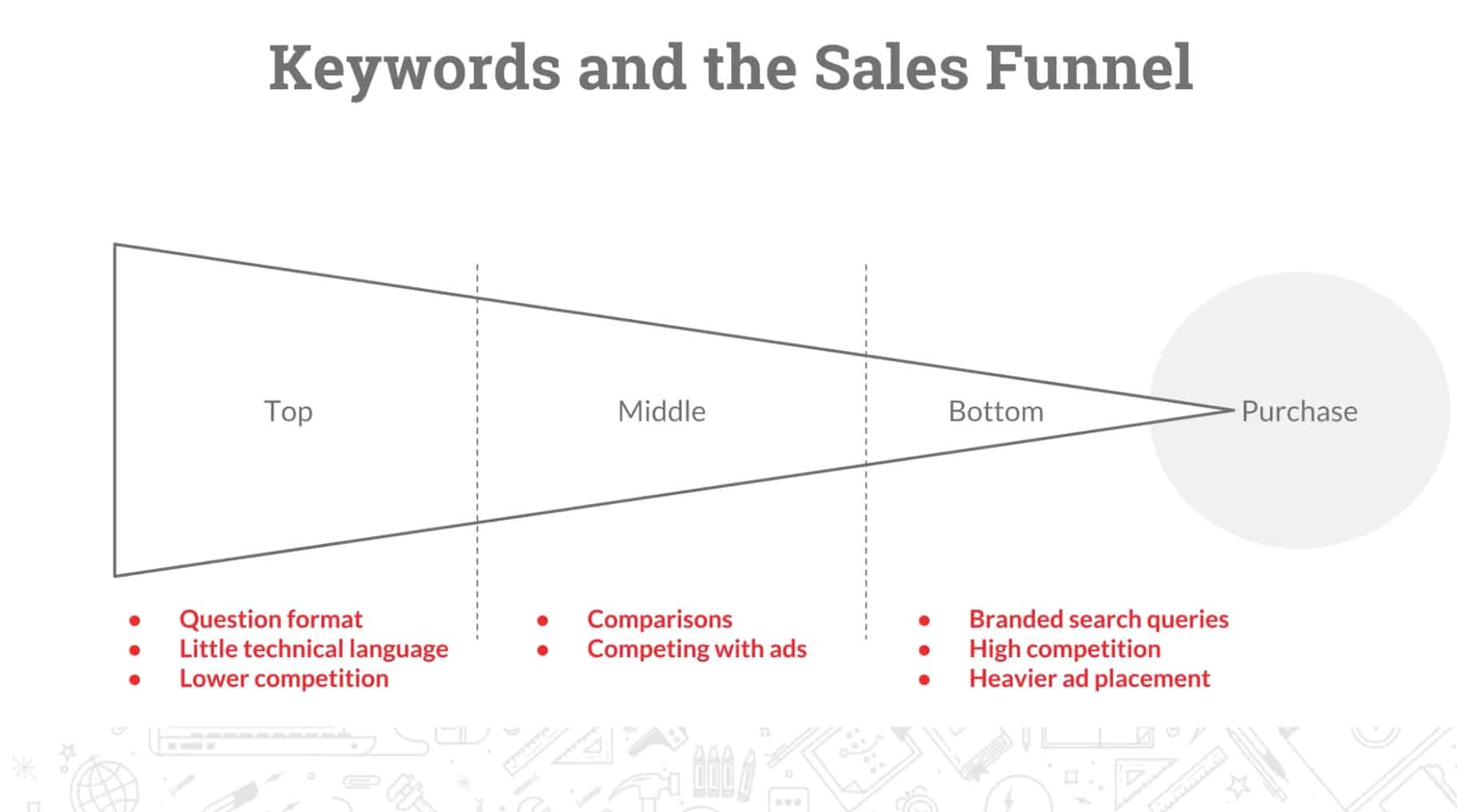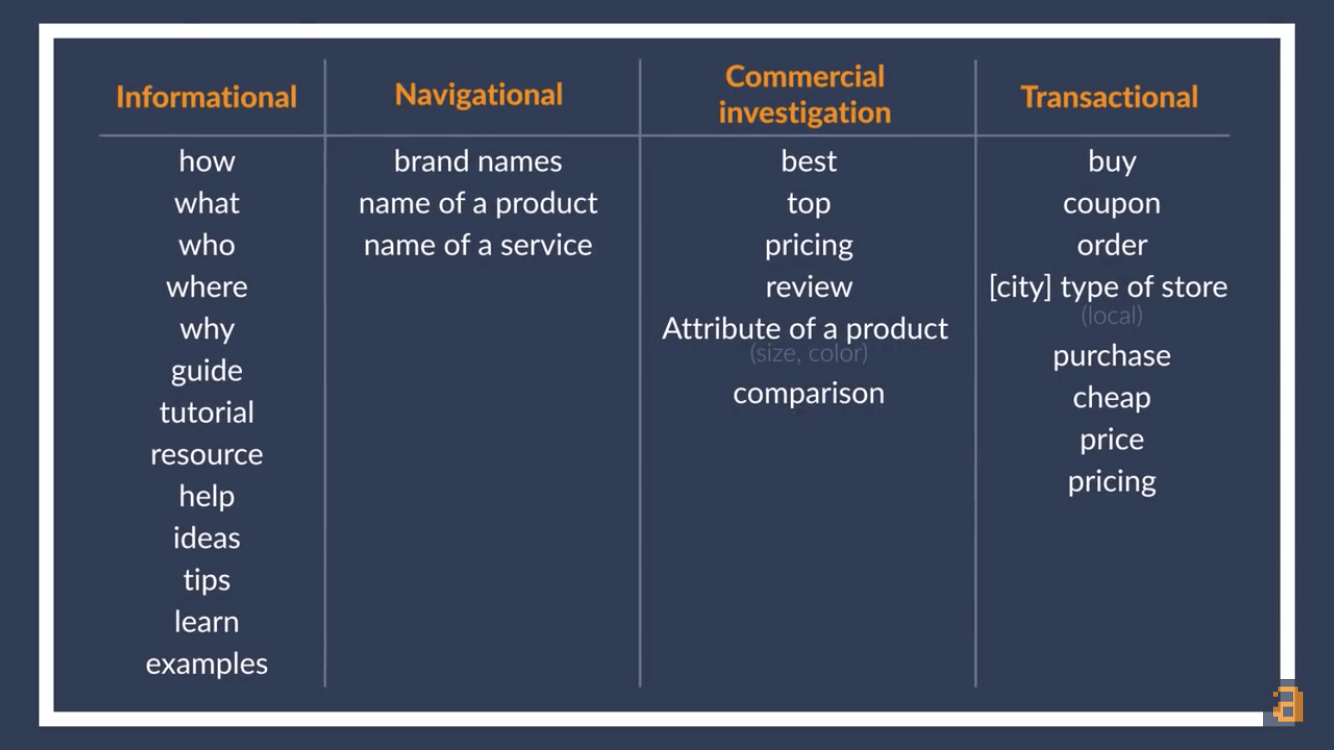Do you select keywords based only on the amount of monthly searches and if they have anything to do with your niche? Chances are, you’re shooting yourself in the foot because you don’t take into account a very crucial aspect of keyword research. What exactly or most likely does the searcher that uses your keyword want to do? An answer to the question defines whether you hit it or miss it big time. This article addresses the factor of search intent in keyword research. You’ll get to know how to come up with keywords that will actually increase your bottom line.
Newbie Keyword Research Routine
Say, you have an online store that sells furniture. You do keyword research and find out that a whole lot of people search for … modern furniture. The problem is that many – if not most – of those people who search for modern furniture don’t really want to buy any furniture because it’s not their search intent. Their intent may be to just get to know what ‘modern furniture’ is. For example, they may be writing a paper about modern furniture or something along those lines.
Don’t get me wrong. I’m not saying there’s no way such keywords could convert into actual buyers. They still can convert and will every now and then, but they are lower-converting ones. You may want to use such keywords for your blog posts just to lure more people to your site from Google and hope that they’ll decide (sooner or later) to buy something off your site.
That said, you don’t want to use that sort of keywords as your target keywords that you build your online business around.
Keyword Research with Search Intent in Mind
You actually want to select keywords that most likely or definitely signify a purchase search intent (also known as transaction search intent). People who look for something on the web for buying something tend to use certain grammatical structures, such as using words like buy, price, etc. You want to target that type of keywords. Now, how do you do that?
Well, the best approach here is to use common sense. You need to sort of dive in the psychology of the field. For example, in our above-mentioned scenario (modern furniture) you may find the following keyword candidates with Google Keyword Planner (I selected just those keywords that more or less signify a transaction search intent):
- modern furniture stores – people search for that if they want to buy furniture in a store
- cheap modern furniture – it’s obvious that the person is ready to spend some cash but not much
- affordable modern furniture – the same holds true here
- discount modern furniture – the person wants a discount which means she’s ready to buy, but with some money saving option
- modern furniture online – this construction signifies an intent to buy as well
Transactional Search Intent Suffixes
If you have a product name, you may want to use the following intent suffixes in order to see if there are any people who use keywords with a buying intent. It goes without saying that that’s not the only thing that you need to do to come up with buying intent keywords for your niche, but the suffixes below will definitely get you started. You just need to replace with your actual product name. For instance, buy -> buy modern furniture.
- buy – okay, this one is obvious, you probably do this anyway
- price – why else would you search for your product’s price if you don’t want to buy
- comparison – you compare things before you make up your mind which one to buy
- color – you choose a color when you’re about to make a purchase
- model code – you dive into such specifics before buying
- review – again, you check product reviews before you make up your mind
- cheap – nuf said
- online – suggests the searcher is looking for an outlet selling the product online, rather than just information
- – specifics are good – if a searcher is looking for a size, it suggests they’re closer to buying
- free shipping – specifying shipping costs suggests a searcher is looking to purchase
- present – words like ‘present’ and ‘gift-wrapped’ suggest an intent to buy
- gift-wrapped – see above
- discount – you want a discount because you want … to buy
Being Creative
The funny thing is that you can’t just use a tool to come up with that sort of ideas. You need an actual human being for that because that’s an activity that no bot can do at the time of the writing. You just need to know how humans behave. That’s just the nature of the beast.
What Next?
Once you’ve got a few buying search intent keywords up your sleeve, you may want to use Ubersuggest.com to get even more ideas. That done, just add your resulted keywords in Google Keyword Planner and see how many people search for them.
Keyword Difficulty
Now that you have the keywords that have a decent amount of monthly searches, you want to see what kind of competition you’ll have to deal with. In order to do that, you can use Moz’ Keyword Difficulty Tool.
In Conclusion
Sticking to this routine allows for selecting not just keywords that have enough monthly searches and doable competition but also those that clearly signify the search intent that translates into the actual readiness to buy your stuff.
Useful Links
Advanced SEO’s Guide to Keyword Research
What is search intent?
Keyword Difficulty: How to Determine Your Chances of Ranking in Google
Search Intent: The Overlooked ‘Ranking Factor’ You Should Be Optimizing for in 2019
SEO Guide to search intent (a.k.a. keyword intent)
Search Intent and SEO: A Quick Guide
Keyword Research Pt 3: Understanding Ranking Difficulty – 1.4. SEO Course by Ahrefs

Image source: https://academy.moz.com/seo-fundamentals/214428






